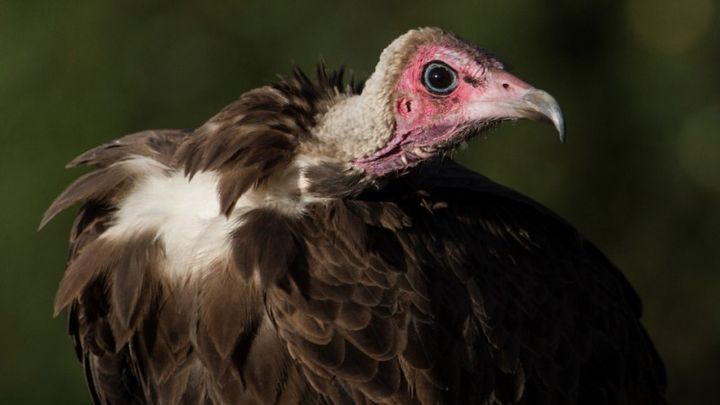
Save the Vultures!
March 18: Evan is talking about vulture conservation on the Eyes on Conservation Podcast!
Summary:
Vulture populations are in steep decline all around the world. They are keystone species and the only animals that specialize on eating carrion. They help to regulate disease by consuming waste in the environment. In their absence, human diseases are likely to become more prevalent, and populations of other scavengers, like dogs and rats will increase. We are working to conserve vulture populations in the Middle East and North Africa- the stronghold for many species- by tracking birds with GPS units, lobbying governemnts to update dangerous powerlines, and combating wildlife poisoning through education campaigns. Please support these efforts! 100% of your contribution will go to field research and conservation initiatives. Sincerely - Evan Buechley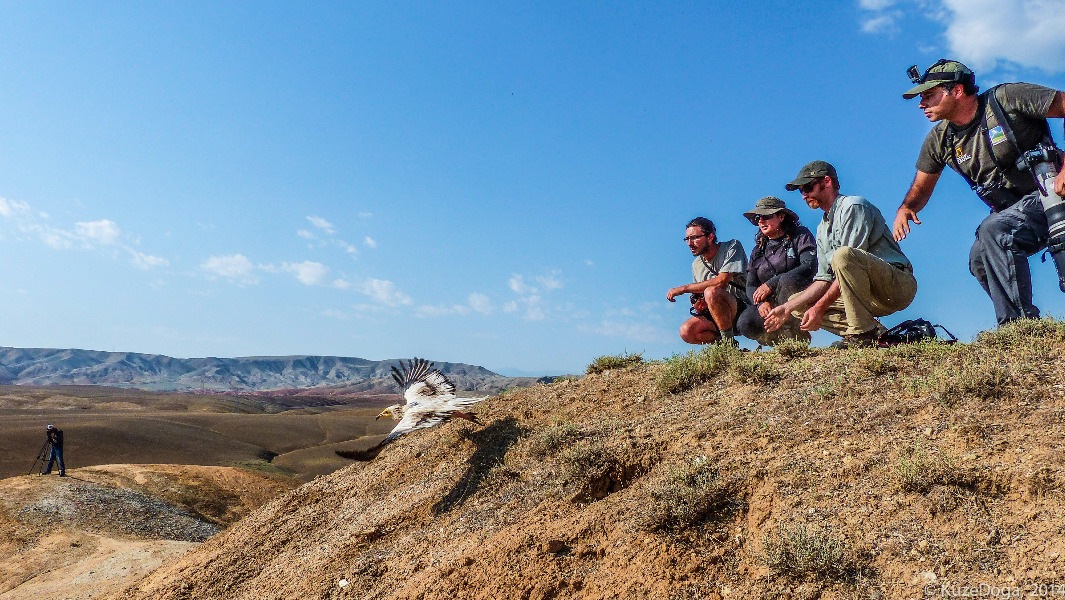 Releasing an Egyptian vulture in Eastern Turkey that is tagged with a tracking device that will allow us to study the migrations of this species.
Releasing an Egyptian vulture in Eastern Turkey that is tagged with a tracking device that will allow us to study the migrations of this species.
How your donation will help:
100% of donations will go straight to field research and conservation activities. We need money right now to fund our research on how vultures may help limit the spread of diseases in Ethiopia. This money will buy cameras to monitor vulture feeding sites and allow us to hire local Ethiopian field assistants.
Press coverage of our work:
National Geographic
Eyes on Conservation Podcast
Vulture Conservation Foundation
Hawk Mountain Sanctuary
Background:
Most people don't think fondly of vultures. Indeed, they are not the most beautiful of animals, and their habit of feeding on the flesh of dead animals isn't the most becoming of attributes. But it is this very fact- that they eat things that humans don't want to see or have around- that makes them so important.
By consuming carcasses of animals, vultures play an incredibly important role in ecosystems- they help to clean the environment of waste and reduce the threat of human disease outbreaks. 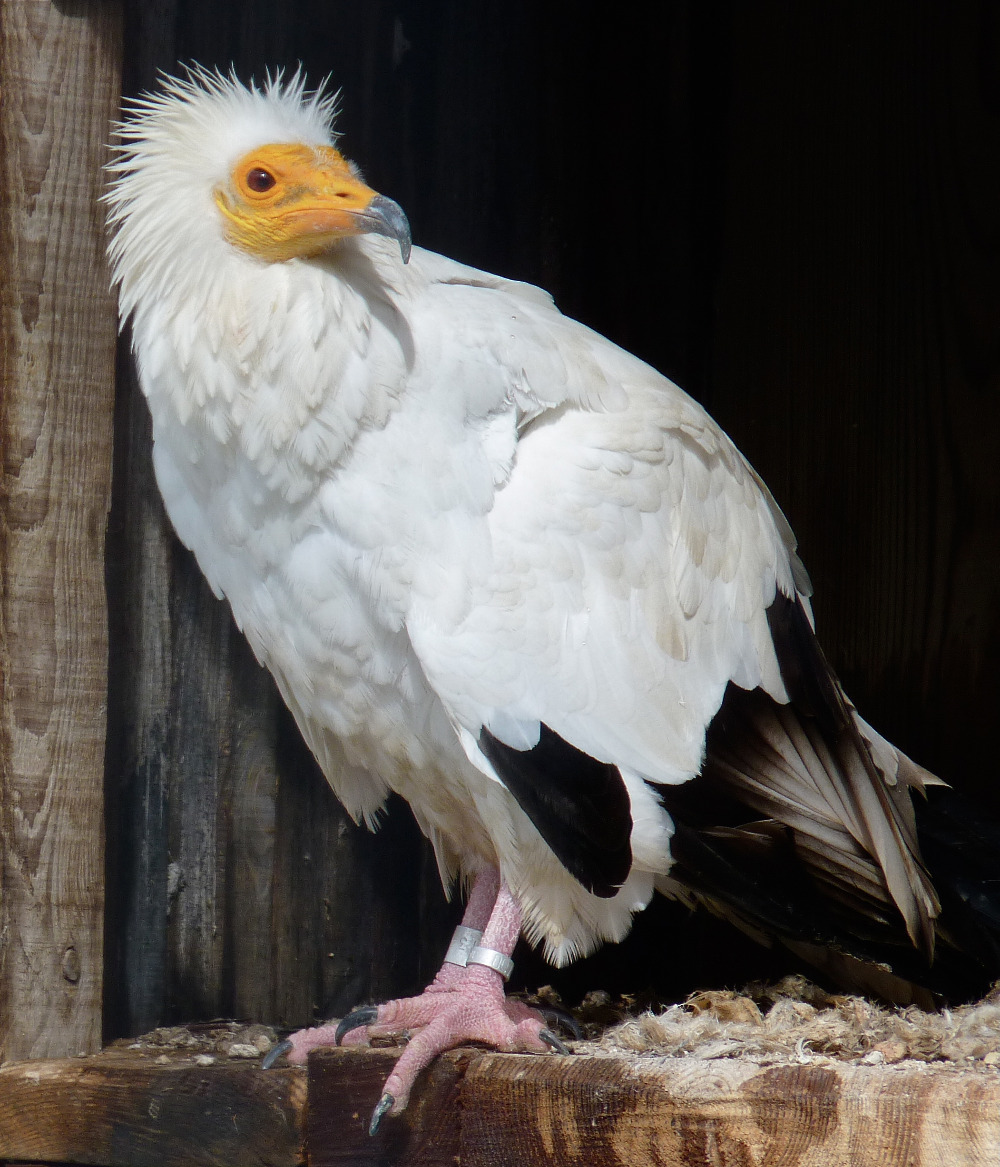 An adult Egyptian vulture.
An adult Egyptian vulture.
Unfortunately, vultures are in trouble these days. Currently, they are the most threatend group of birds and their populations are in decline around the world. For example, in South Asia populations of vultures declined by as much as 99.9% over the last two decades. Meanwhile, in East and West Africa, populations have declined by 62% and 95%, respectively, over the last 30 years .
When vultures go missing the consequences for humans and ecosystems can be severe. For example, when vulture populations crashed in India, feral dog populations increased drastically. The increase in wild dogs led to an additional 40 million dog bites from 1992 to 2003, causing a shocking 48,000 additional rabies mortalities in humans. This cost India an estimated $34 billion for medical treatment.
Furthermore, the loss of vultures may cause trophic cascades. When vultures are gone, other animals eat the carcasses. These often include pests and invasive species, such as feral dogs, rats, and gulls. By “subsidizing” populations of these species with carrion, their numbers increase. Of the 56 animals on the 100 Worst Invasive Species list, 27—or nearly half—are opportunistic scavengers. In a particularly notorious example, the scavenging habits of rats have, at least in part, enabled them to adapt to a variety of environments and to become invasive species across the world. As a repercussion of their success in colonizing new habitats, rats are associated with global declines or extinctions of 60 animal species. 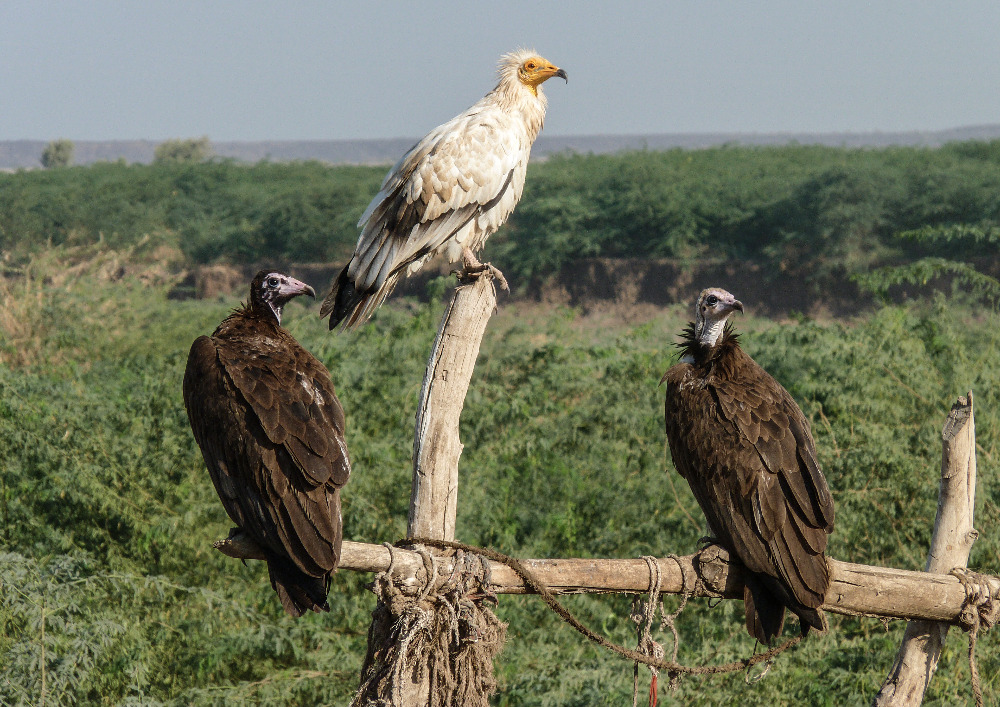 An Egyptian (above) and two Hooded vultures in Ethiopia.
An Egyptian (above) and two Hooded vultures in Ethiopia.
What we're doing to research and combat vulture declines:
Our team is working in Turkey and Ethiopia to conduct research in two of the countries with the largest remaining vulture populations in the world. We are working in collaboration with local partners in both of these countries, KuzeyDoga Society in Turkey, and the Ethiopia Wildlife Natural History Society in Ethiopia. We focus on research, conservation, and community development through hands-on training. Specific goals for this year include:
1) Study how vultures can help limit the spread of disease by cleaning up waste in one of the largest and poorest metropolis in Africa- Addis Ababa, Ethiopia.
2) Track the intercontinental migrations of the endangered Egyptian Vulture throughout the Middle East and North Africa to identify threats to this little-studied species. 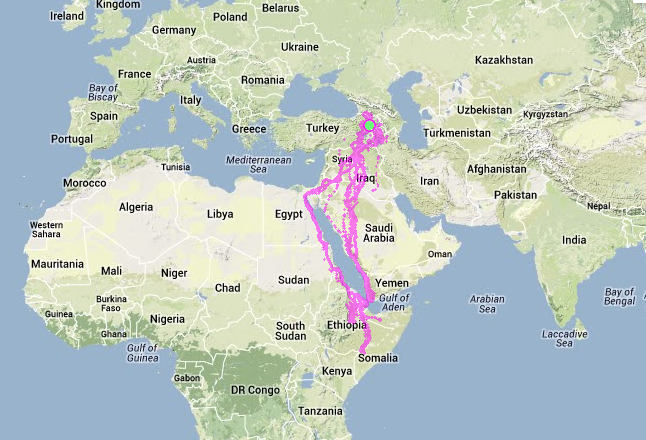 Tracking data from GPS units on Egyptian vultures we tagged have revealed the novel migrations of the species in the Middle East.
Tracking data from GPS units on Egyptian vultures we tagged have revealed the novel migrations of the species in the Middle East.
3) Lobby the Turkish government to renovate killer power lines that we have documented killing vultures.
4) Work to combat wildlife poisoning in Ethiopia with our Ethiopian collaborators the Ethiopia Wildlife and Natural History Society.
Who we are:
Evan R. Buechley , PhD candidate in Biology at the University of Utah, USA
Cagan H. Sekercioglu , Assistant Professor at the University of Utah, President and founder of KuzeyDoga Society, Turkey.
Yilma Dellelegn, Ornithologist, Ethiopia Wildlife and Natural History Society.
Emrah Coban, Biologist, KuzeyDoga Society, Turkey.
Lale Aktay, Biologist, KuzeyDoga Society, Turkey.
Kayahan Agirkaya, Volunteer, KuzeyDoga Society, Turkey.
Key Collaborators:
The University of Utah, Department of Biology
KuzeyDoga Society
Vulture Conservation Foundation
Ethiopia Wildlife and Natural History Society
Ethiopia Wildlife Conservation Authority
American University of Armenia, Acopian Center for the Environment